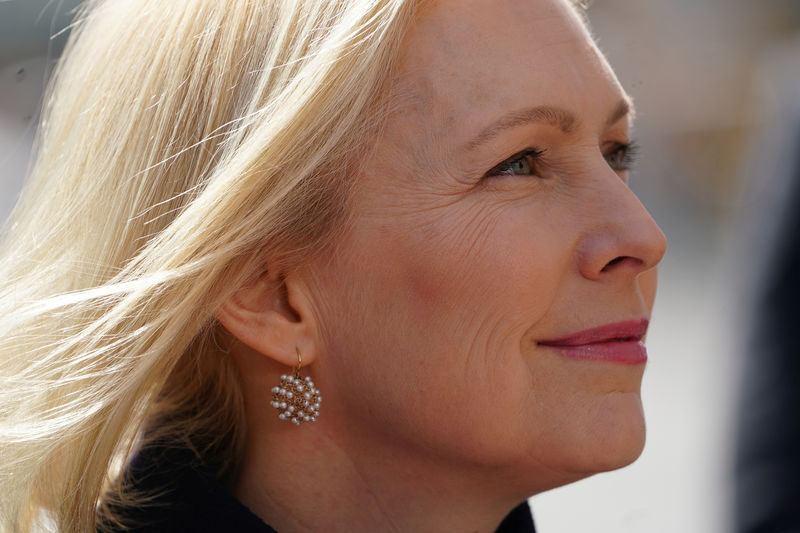By Ginger Gibson
WASHINGTON (Reuters) - U.S. Democratic presidential hopeful Kirsten Gillibrand on Wednesday proposed requiring insurance companies to cover expensive fertility treatments, part of a "Family Bill of Rights" that would also help with adoption and medical care.
Gillibrand, a U.S. senator from New York, has struggled to gain traction in the crowded field of more than 20 Democratic presidential candidates vying to challenge President Donald Trump. She recently became one of the most vocal candidates calling for access to abortion and criticizing laws like those passed in Alabama that would virtually ban on the practice.
"My new proposal, the Family Bill of Rights, will make all families stronger - regardless of who you are or what your zip code is - with a fundamental set of rights that levels the playing field starting at birth," Gillibrand said in a statement.
Gillibrand would pay for the proposals by taxing financial transactions to generate an estimated $777 billion over the next decade. Senate Democrats have proposed a 0.03% "Robin Hood" tax on Wall Street transactions.
She wants to expand access to adoption services and fertility treatments "regardless of income, sexual orientation, religion or gender identity."
Gillibrand said she would require health insurance companies to cover costly treatments like in vitro fertilization (IVF) which most plans currently do not cover.
Additionally, Gillibrand said she would expand the federal adoption tax credit, making it accessible to more people including those whose incomes are so low they do not owe any federal taxes.
The senator also advocated for proposals that are already popular among Democrats candidates. She called for more maternal care doctors, including those in rural areas.
In addition to more maternal care, Gillibrand called for automatically enrolling all babies in the Children's Health Insurance Program (CHIP), which currently provides health care to babies born into poverty.
Calling it a "right to personally care for your loved ones while still getting paid, she endorsed enacting paid family leave.

Gillibrand also called for a tax credit to help parents pay for child care. This stops short of a proposal already made by one of her rivals, U.S. Senator Elizabeth Warren, who called for subsidizing child care and creating out-of-pocket maximums for parents.